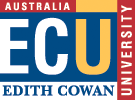COURSE INFORMATION
Disclaimer
This course information may be updated and amended immediately prior to semester. To ensure you have the correct outline, please check it again at the beginning of semester.
| E66 Bachelor of Engineering (Computer Systems) | ||||||||||||||||||||||||||||||||||||||||||||||||||||||||||||||||||||||||||||||||||||||||||||||||||||||||||||||||||||||||||||||||||||||||||||||||||||||||||||||||||||||||||||||||||||||||||||||||||||||||||||||||||||||
|
Computer systems engineering is the synergistic combination of electronic engineering and computer science. Computer systems engineers have a wide knowledge of digital and analogue electronic systems and a detailed understanding of computer architecture, software design and hardware-software interfacing. They are involved in all aspects of computing from the development of individual microprocessors, to the design of personal, mainframe or supercomputers systems, as well as digital and mixed signal circuit design, real-time and embedded system implementation, and software engineering. Graduates of the course will be conversant in the fundamental physical sciences, computer architecture, digital electronics, data communications, interfacing, real-time and embedded systems, robotics and software development. The course focuses on the development of knowledge and skills relevant to professional engineering practice and, along with a sound theoretical base, includes strong elements of practical problem solving, team work and project development. As a result, as well as having multiple technical and transferable skill competencies, graduates will have strong analytical skills and the ability to lead complex projects.
HONOURS IN ENGINEERING Students whose performance over the four years of the course is of a high standard may be awarded the Bachelor of Engineering with Honours degree.
INTERNATIONAL STUDENTS Overseas students may be admitted to the Engineering course subject to the University’s fee scale.
The language of instruction is English and all students are expected to be proficient in both spoken and written English.
All assessment will be conducted in the English language.
PRACTICUM REQUIREMENTS During the course, students will be required to undertake a minimum of 12 weeks practical work experience located in an engineering industry environment. This will normally be undertaken during a vacation period, even though it is listed as a unit for Year 4 (ENS4111).
ACCREDITATION Engineers Australia has formally granted Full Accreditation to Bachelor of Engineering (Computer Systems, Communication Systems, Electronic Systems). Parallel accreditation status has been granted for the Bachelor of Engineering/Bachelor of Business and Bachelor of Engineering/Bachelor of Science double degree courses. |
||||||||||||||||||||||||||||||||||||||||||||||||||||||||||||||||||||||||||||||||||||||||||||||||||||||||||||||||||||||||||||||||||||||||||||||||||||||||||||||||||||||||||||||||||||||||||||||||||||||||||||||||||||||
| ADMISSION REQUIREMENTS In addition to satisfying standard ECU admission requirements, satisfactory performance in TEE (or equivalent) Calculus or Applicable Mathematics is required. Students who have completed an Associate Diploma or its equivalent in an allied engineering field may be admitted to the Bachelor of Engineering with advanced standing |
||||||||||||||||||||||||||||||||||||||||||||||||||||||||||||||||||||||||||||||||||||||||||||||||||||||||||||||||||||||||||||||||||||||||||||||||||||||||||||||||||||||||||||||||||||||||||||||||||||||||||||||||||||||
| COURSE LOCATION This course is available on Joondalup Campus. |
||||||||||||||||||||||||||||||||||||||||||||||||||||||||||||||||||||||||||||||||||||||||||||||||||||||||||||||||||||||||||||||||||||||||||||||||||||||||||||||||||||||||||||||||||||||||||||||||||||||||||||||||||||||
| MODE OF STUDY This course is available by Full-time, or Part-time mode. |
||||||||||||||||||||||||||||||||||||||||||||||||||||||||||||||||||||||||||||||||||||||||||||||||||||||||||||||||||||||||||||||||||||||||||||||||||||||||||||||||||||||||||||||||||||||||||||||||||||||||||||||||||||||
| MODE OF DELIVERY This course is available in the following mode of delivery - On-campus. |
||||||||||||||||||||||||||||||||||||||||||||||||||||||||||||||||||||||||||||||||||||||||||||||||||||||||||||||||||||||||||||||||||||||||||||||||||||||||||||||||||||||||||||||||||||||||||||||||||||||||||||||||||||||
| COURSE STRUCTURE The course consists of 480 credit points (thirty core units, two electives and a practicum unit). |
||||||||||||||||||||||||||||||||||||||||||||||||||||||||||||||||||||||||||||||||||||||||||||||||||||||||||||||||||||||||||||||||||||||||||||||||||||||||||||||||||||||||||||||||||||||||||||||||||||||||||||||||||||||
| ||||||||||||||||||||||||||||||||||||||||||||||||||||||||||||||||||||||||||||||||||||||||||||||||||||||||||||||||||||||||||||||||||||||||||||||||||||||||||||||||||||||||||||||||||||||||||||||||||||||||||||||||||||||
Last Updated - Higher Education: 30/09/2006 VET: 30/09/2006
